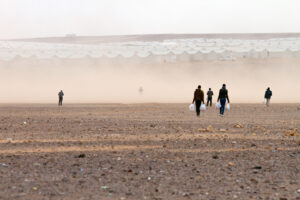
WASHINGTON (BP)–The annual human rights report by the U.S. State Department has cited increased repression in countries around the world, including China and North Korea.
“There are several trends that we identify in the report. One is that increasingly, governments are becoming more restrictive in their tolerance of nongovernmental human rights organizations, in particular,” said Michael Posner, assistant secretary from the State Department’s Bureau of Democracy, Human Rights and Labor, at a news conference for the 2009 report’s release.
The report, which is a requirement by Congress, is an annual evaluation of human rights in 194 countries. Secretary of State Hillary Clinton, who also spoke at the news conference, described the report as an “essential tool” for activists who work to protect human rights.
According to the report, there were alarming accounts of imprisonment, attacks and killings in “countries of conflict,” such as China and North Korea, as well as Iran and Russia.
“In many of these conflict zones, insurgents, terrorist organizations, paramilitary forces, and government security forces used murder, rape, and inhumane tactics to assert control over territory, silence opponents, and coerce the cooperation of civilian communities …,” the report said.
The report criticized China’s government for its increased persecution of its citizens last year. The government’s human rights record “remained poor and worsened in some areas.” Chinese activists, journalists and public interest lawyers were harassed and imprisoned, and there were reports of religious abuse of ethnic minorities.
The Chinese government also was accused of violating human rights by limiting Internet use.
“The government of China increased its efforts to monitor Internet use, control content, restrict information, block access to foreign and domestic Web sites, encourage self-censorship, and punish those who violated regulations,” according to the report.
Following China’s model, North Korea’s government denied citizens freedom of expression and continued to gain control over their lives. The government maintained heavy media censorship as well, and only the political elite were allowed to listen to foreign media broadcasts.
“The government sought to control virtually all information: there were no independent media, Internet access was limited to high-ranking officials and other elites, and academic freedom was repressed,” the report said. “Domestic media censorship continued to be strictly enforced and no deviation from the official government line was tolerated.”
Iran’s human rights record declined after the presidential election in June, the report stated, noting that the government took away citizens’ rights to a free and fair election, and more than 4,000 protesters were imprisoned.
Similarly, Russian journalists and major media outlets were banned from covering media-sensitive news, including reports on government officials. Several human rights activists and journalists were killed for their media coverage.
Deborah Graze, foreign service officer at the State Department, emphasized the importance of perseverance at a human rights meeting with university students following the March 11 news conference.
While the report may appear discouraging, calling attention to governments such as China that violate human rights laws makes a difference, Graze said.
“… It is very difficult to engage with the Chinese on a range of human rights, but it doesn’t mean that we don’t do it,” she said. “… It also doesn’t mean that it doesn’t make a difference. It doesn’t mean just because it’s hard it’s not worth continuing to do.”
–30–
Hillary May is an intern with the Washington bureau of Baptist Press.














